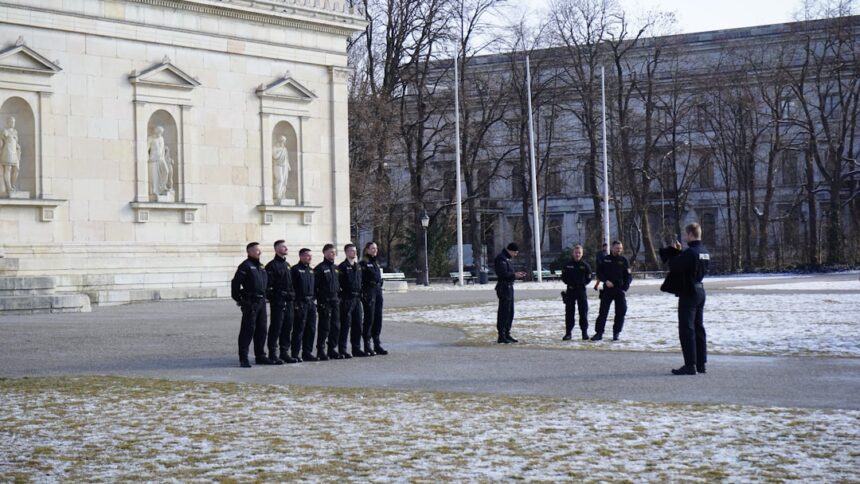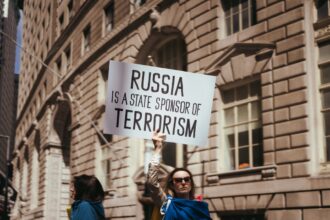The concept of private security forces can be traced back to the earliest civilizations, where the need for protection and safety was paramount. In ancient societies, individuals often relied on personal guards or hired protectors to safeguard their property and ensure their safety. These early forms of private security were often informal arrangements, with individuals employing trusted warriors or strongmen to defend against threats.
As communities grew and became more complex, the demand for organized protection services increased, leading to the establishment of more structured private security entities. The origins of private security forces are deeply intertwined with the evolution of societal structures. As cities emerged and populations swelled, the need for security became more pronounced.
Wealthy merchants and landowners began to hire guards to protect their assets from theft and violence. This marked a significant shift from relying solely on communal or state-provided protection to a more individualized approach. The rise of private security forces laid the groundwork for the professional security industry that would develop over the centuries.
Key Takeaways
- Private security forces have a long history dating back to ancient times and have evolved significantly over the centuries.
- In ancient times, private security forces were often employed by wealthy individuals and were responsible for protecting property and assets.
- Private security forces in medieval Europe were often employed by royalty and nobility to maintain order and protect their estates.
- The United States saw a significant rise in private security forces, particularly during the 19th century, as industrialization and urbanization created new security challenges.
- The industrial revolution brought about a significant increase in the demand for private security forces to protect factories, warehouses, and other industrial facilities.
Private Security Forces in Ancient Times
In ancient civilizations such as Mesopotamia, Egypt, and Rome, private security forces played a crucial role in maintaining order and protecting property. In Mesopotamia, for instance, wealthy landowners would employ armed guards to protect their estates from rival factions and thieves. These guards were often drawn from the local population and were well-versed in the art of combat, providing a sense of security to their employers.
Similarly, in ancient Egypt, the Pharaohs relied on private security forces to protect their palaces and treasures. These forces were often composed of elite soldiers who had proven their loyalty and skill in battle. The Roman Empire also saw the emergence of private security, with wealthy citizens hiring bodyguards known as “lictors” to accompany them in public.
These early forms of private security not only provided physical protection but also served as a status symbol, reflecting the wealth and power of their employers.
Private Security Forces in Medieval Europe

The medieval period in Europe witnessed a significant evolution in private security forces, particularly with the rise of feudalism. Lords and nobles employed knights and retainers to protect their lands and enforce their will. These private armies were often loyal to their lords rather than to any centralized authority, leading to a fragmented system of security that varied greatly from one region to another.
During this time, the concept of chivalry emerged, which emphasized honor and loyalty among knights. This code of conduct influenced the behavior of private security forces, as they were expected to uphold certain ethical standards while serving their lords.
The lack of centralized law enforcement during this period meant that private security forces often operated with impunity, further complicating the relationship between security and justice.
The Rise of Private Security Forces in the United States
| Year | Number of Private Security Officers | Revenue of Private Security Industry (in billions) |
|---|---|---|
| 2010 | 1,000,000 | 52.3 |
| 2015 | 1,100,000 | 63.8 |
| 2020 | 1,200,000 | 78.4 |
The rise of private security forces in the United States can be traced back to the colonial era when settlers relied on militias for protection against Native American tribes and other threats. As towns developed, so did the need for organized security measures. By the 19th century, private security firms began to emerge, offering services ranging from property protection to personal bodyguards.
One notable example is the Pinkerton National Detective Agency, founded in 1850 by Allan Pinkerton. Initially established to provide investigative services, the agency quickly expanded its operations to include armed security for railroads and businesses facing threats from labor unrest and criminal activity. The Pinkertons became synonymous with private security in America, often operating outside the bounds of traditional law enforcement and sometimes engaging in controversial tactics to achieve their objectives.
Private Security Forces in the Industrial Revolution
The Industrial Revolution marked a turning point for private security forces as urbanization and industrialization created new challenges for public safety. As factories sprang up and cities expanded rapidly, crime rates surged, prompting businesses to seek additional protection. Private security firms flourished during this period, providing services tailored to the needs of industrialists and entrepreneurs.
These firms often employed former military personnel or law enforcement officers who brought their expertise in handling security threats. The rise of labor movements during this time also led to increased tensions between workers and employers, resulting in violent confrontations that necessitated the presence of private security forces. Companies frequently hired armed guards to break up strikes or protect their facilities from potential sabotage, further entrenching the role of private security in American society.
Private Security Forces in the 20th Century

The 20th century saw significant changes in the landscape of private security forces, particularly following World War
During this time, private security firms began to adopt more professional standards and practices. Many organizations established training programs for their personnel, emphasizing customer service alongside traditional security skills. This shift towards professionalism helped legitimize private security forces in the eyes of the public and positioned them as essential partners in maintaining safety alongside law enforcement agencies.
The Role of Private Security Forces in Modern Society
In contemporary society, private security forces have become an integral part of daily life. They are ubiquitous in various settings, including shopping malls, corporate offices, schools, and residential communities. Their presence provides a sense of safety for individuals and businesses alike, often acting as a deterrent against crime.
Many firms now offer specialized services such as cybersecurity, event security management, and risk assessment consulting. This diversification reflects a broader understanding that safety encompasses not only physical protection but also safeguarding against emerging threats in an increasingly digital world.
Controversies Surrounding Private Security Forces
Despite their growing prominence, private security forces are not without controversy. Critics argue that the privatization of security can lead to a lack of accountability and oversight. Unlike public law enforcement agencies that are subject to governmental regulations and community scrutiny, many private firms operate with minimal oversight, raising concerns about potential abuses of power.
Additionally, there are ethical considerations regarding the use of force by private security personnel. Incidents involving excessive force or discrimination have sparked public outcry and calls for reform within the industry. The challenge lies in balancing the need for effective security with ensuring that private forces operate within ethical boundaries that respect individual rights.
The Regulation of Private Security Forces
In response to concerns about accountability and professionalism within the industry, many countries have implemented regulations governing private security forces. These regulations often require firms to obtain licenses, adhere to training standards, and maintain liability insurance. In some jurisdictions, background checks are mandated for personnel working in sensitive positions.
However, regulatory frameworks vary widely across regions, leading to inconsistencies in how private security is managed globally. Some areas have robust oversight mechanisms in place, while others lack comprehensive regulations altogether. This disparity can create challenges for both consumers seeking reliable security services and for law enforcement agencies attempting to collaborate with private firms.
The Future of Private Security Forces
Looking ahead, the future of private security forces appears poised for further evolution driven by technological advancements and changing societal needs. As threats become more sophisticated—ranging from cybercrime to terrorism—private security firms will need to adapt by incorporating cutting-edge technologies such as artificial intelligence and data analytics into their operations. Moreover, there is likely to be an increased emphasis on collaboration between public law enforcement agencies and private security forces.
As communities seek comprehensive safety solutions that leverage both public resources and private expertise, partnerships may become more common. This collaborative approach could enhance overall safety while addressing some of the ethical concerns surrounding privatized security.
The Impact of Private Security Forces on Law Enforcement
The rise of private security forces has had a profound impact on traditional law enforcement agencies. On one hand, these forces can complement public policing efforts by providing additional resources and expertise in specific areas such as crowd control or event management. This partnership can enhance overall community safety by allowing law enforcement officers to focus on more complex criminal investigations.
On the other hand, there are concerns that an overreliance on private security could undermine public trust in law enforcement agencies. If citizens perceive that safety is primarily a commodity available through private means rather than a public good provided by government institutions, it may erode confidence in traditional policing methods. Striking a balance between utilizing private resources while maintaining robust public law enforcement will be crucial for fostering trust within communities moving forward.
In conclusion, private security forces have evolved significantly over centuries from informal arrangements in ancient times to sophisticated organizations integral to modern society’s safety infrastructure. While they offer valuable services that complement public law enforcement efforts, ongoing discussions about regulation, accountability, and ethical practices will shape their future role within communities worldwide.
The history of private security forces is a fascinating topic that delves into the evolution of private entities providing protection and security services outside of traditional law enforcement. For those interested in exploring this subject further, an insightful article can be found on the website “In The War Room.” This article provides a comprehensive overview of how private security forces have developed over time, highlighting key historical milestones and their impact on modern security practices. To read more about this intriguing history, you can visit the article by clicking on this link.
WATCH THIS! From Tehran to Blackwater: The Real Story
FAQs
What is the history of private security forces?
Private security forces have a long history, dating back to ancient civilizations such as Egypt and Rome, where wealthy individuals would hire private guards to protect their property and assets.
When did private security forces become more prominent?
Private security forces became more prominent during the industrial revolution in the 18th and 19th centuries, as businesses and industrialists sought to protect their factories and assets from theft and sabotage.
How did private security forces evolve in the 20th century?
In the 20th century, private security forces expanded their roles to include providing personal protection for individuals, as well as offering security services for events, residential communities, and commercial properties.
What are some examples of private security forces in modern times?
Modern examples of private security forces include private security firms, executive protection agencies, and private military companies that provide security services to governments, businesses, and individuals.
What are the regulations and oversight for private security forces?
Regulations and oversight for private security forces vary by country and jurisdiction, but generally involve licensing, training requirements, and adherence to specific laws and regulations governing the use of force and firearms.




